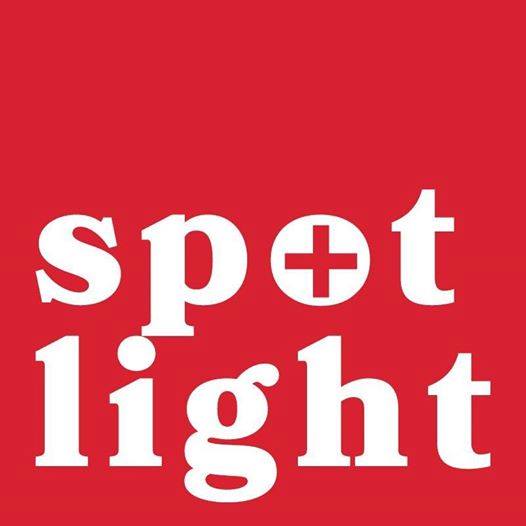- M72/AS01E: More good news on experimental vaccine
Probably the most important scientific findings presented this week was the final, three-year follow-up data from the phase II trial of a new TB vaccine called M72/AS01E. The rate of TB disease in study participants who received the vaccine was half of that in study participants who received a placebo. As a number of people pointed out, even a vaccine with just 50% efficacy could have a major impact on the global TB epidemic. The study findings were published in the New England Journal of Medicine and the New York Times did a good write-up of the study.
However, important scientific questions about the vaccine remain unanswered. Most critically for the South African context, the study did not include people living with HIV and children. A confirmatory phase III trial that includes children and people living with HIV is now an obvious priority. When and whether such a study will be conducted remains unclear.
- Rifapentine: Price cut should accelerate uptake of new preventive therapy
The current standard for treating latent TB infection in South Africa is six to 36 months of the drug isoniazid. A newer regimen that consists of three months of isoniazid plus a second drug called rifapentine is set to become the new standard of care, but its introduction has been delayed by the high price of rifapentine.
That price barrier was dramatically reduced this week, with the announcement that the lowest international price of rifapentine has dropped by two- thirds – from $45 for three months to $15 for three months (around R225). In the current South African TB medicines tender the price is around $49 for three months – but the tender volumes are very low, which suggests this price drop may have been anticipated. In the Guardian’s report on the price cut they quote Health Minister Dr Zweli Mkhize saying that, “Hundreds of thousands of vulnerable people can be initiated on this new treatment regimen starting next year, thanks to this price agreement.”
The price reduction is the result of a volume-based agreement between UNITAID, the Global Fund for AIDS, TB and Malaria and the pharmaceutical company Sanofi. The price should fall further as more generic competitors to Sanofi’s rifapentine product are launched in the coming years.
- LF-LAM: WHO expands eligibility for urinary test
The World Health Organization (WHO) this week updated its guidance for the use of lateral flow urine lipoarabinomannan assay (LAM) in the diagnosis of TB. LF-LAM is a simple urine test that can detect TB in HIV-positive people with compromised immune systems. Studies have shown that its use in hospitals saves lives by providing a quicker TB diagnosis, thereby helping to get people on to appropriate treatment more quickly.
The WHO now recommends the test for all hospitalised HIV-positive patients showing signs of TB or with CD4 counts below 200 cells/mm3. The previous cut-off was 100 cells/mm3. The test is also now recommended to HIV-positive children and adolescents who show signs of TB in out-patient settings, irrespective of CD4 count
- Pretomanid: Newly registered drug gets a price
Earlier this year the United States Food and Drug Administration registered the new TB drug pretomanid for use in combination with specific other TB drugs for the treatment of hard to treat forms of drug-resistant TB. Pretomanid has not yet been registered by the South African Health Products Regulatory Authority (SAHPRA) and can thus not currently be marketed in South Africa. Given unanswered questions about the drug’s safety and efficacy, it cannot be taken for granted that SAHPRA will register it any time soon.
It was announced this week that pretomanid will be available in a long list of countries at a price of $364 for a six-month course (around R5,500). This price will be available to South Africa should SAHPRA register the drug. Doctors without Borders (MSF) was quick to release a statement saying the price is too high.
It was also announced this week that Indian pharmaceutical company Macleods has been given a licence to manufacture and market the drug. Previously only the pharmaceutical company Mylan was licensed. Pretomanid is relatively unique in that it is owned by a non-profit called the TB Alliance. Activists have been critical of the TB Alliance’s refusal to make their pretomanid licenses public.
- Sutezolid: New licence frees important data
By contrast with the TB Alliance’s pretomanid licences, a TB licence that is open to public scrutiny is one that has just been announced between Pfizer and the Medicines Patent Pool. The license is for the use of data relating to the experimental TB drug sutezolid. The licence should mean that the significant data and intellectual property hurdles that have held back the development of this drug over the last decade, are now all cleared.
Sutezolid is of the same class of drugs as another TB drug called linezolid. Linezolid has in recent years become a critical part of treatment regimens for drug-resistant forms of TB (having been included in both WHO and South African treatment guidelines). While linezolid is highly effective, it is associated with significant side-effects. The hope is that sutezolid will turn out to be as effective as linezolid, but cause fewer and less severe side effects.
- Deep learning: Automated X-ray interpretation outperforms humans
Research published in the journal Nature and presented this week at the conference evaluated the performance of three different deep learning systems to detect TB from X-rays. These are essentially computer programs that have been trained to read X-rays in order to determine whether the X-rays indicate TB disease.
The researchers found that “all three systems performed significantly better than human radiologists”. Deep learning systems such as these can be of particular value in places where there is a shortage of radiologists who interpret X-rays. The three different systems were about equally accurate. The researchers wrote that: “Implementers considering using deep learning systems for CXR (chest radiography) reading should take into account other factors including service, ease of use, maintenance and price – all important considerations in any new technology implementation.”
Spotlight did not have a journalist at this year’s Union World Lung Conference and it has thus been difficult to cover more of the science presented at the conference. Unlike with, for example the Conference on Retroviruses and Opportunistic Infections, conference abstracts are not readily available online and only certain select sessions are streamed online.
There were also a number of notable reports published over the last two weeks or so. The following three stood out:
- The WHO published the latest edition of their World TB Report.
- Doctors without Borders published the latest edition of their DR-TB Drugs Under the Microscope report.
- Treatment Action Group published excellent new chapters in their Pipeline series on TB treatment, TB diagnostics, and TB vaccines. MC
This article was first published in Spotlight.






















 Become an Insider
Become an Insider